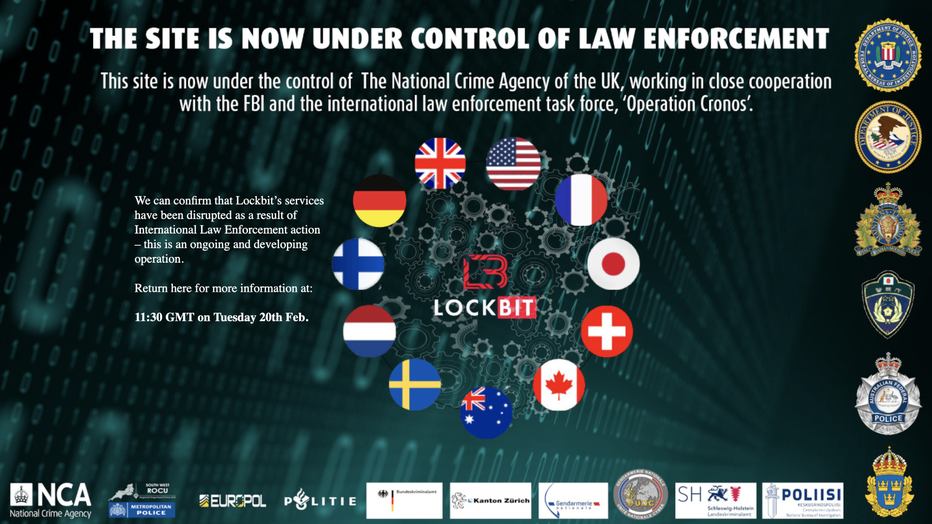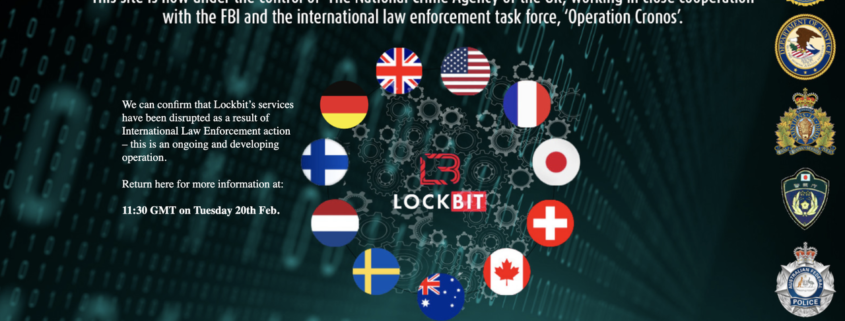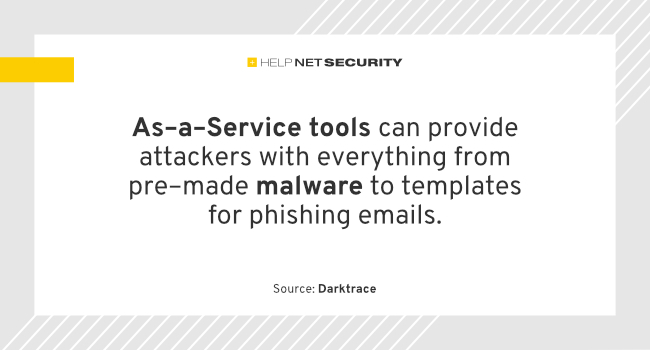Site run by cyber criminals behind Fulton County ransomware attack taken over
Fulton County hacker site taken offline
A hacking group that claims to be behind Fulton County’s ransomware attack has been taken offline buy international law enforcement.
FULTON COUNTY, Ga. – International officials believe they have gotten to the bottom of a cyberattack in Fulton County.
On Monday, a website belonging to a group of accused cyber criminals who claimed responsibility for the ransomware incident in Fulton County was taken down by the National Crime Agency of the UK.
The international law enforcement group working in conjunction with the FBI says they will report more information about the takeover on Feb. 20.

Lockbit website reportedly taken over by The National Crime Agency of the UK. This screenshot was taken on Feb. 19, 2024.
What Fulton County systems are impacted by the cyberattack?
Officials say the cyberattack in late January affected the county’s phone system, court system, tax system and jailhouse.
“A number of our primary technology platforms are affected by this incident,” Fulton County Board of Commissioners Chairman Robb Pitts said. Two weeks later, officials revealed that the attack may have been financially motivated.
Was my personal information compromised during Fulton County ransomware attack?
Fulton County did not say what information hackers might have, but according to a screenshot from the alleged hacking group’s website posted on social media, it might include confidential documents and personal data of citizens.
Last week, the Lockbit group threatened to release the data they stole.
The hackers gave Fulton County until Feb. 16 to pay a ransom. FOX 5 Atlanta reached out to determine whether it was paid, but has not received an answer.
“If we determine sensitive personal information was involved in this incident, we will notify those parties in accordance with legal requirements,” Pitts said.
The county says the investigation is ongoing and warns the situation is not unique to Fulton County.
“Incidents like these are on the rise across the United States and the world, particularly in local governments and we at Fulton County are no exception,” Pitts said.
In the meantime, Fulton County officials say they are working to strengthen…




